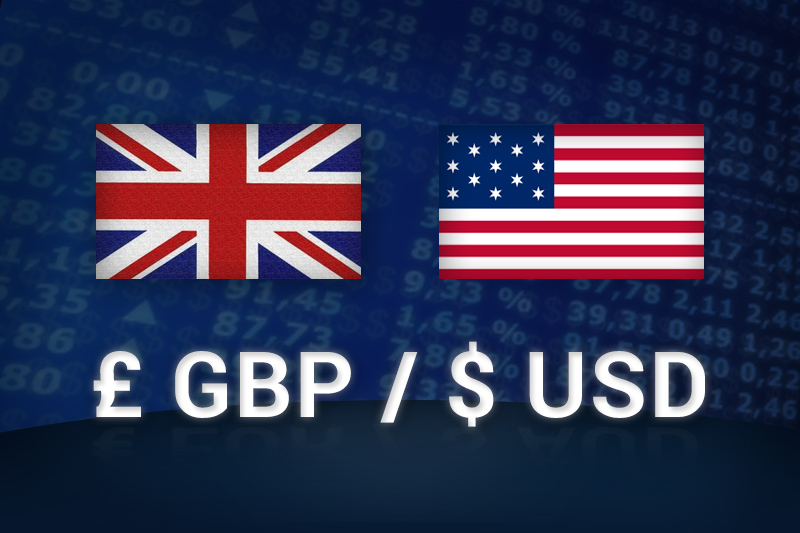Investing.com - The pound erased gains against the U.S. dollar on Tuesday, as U.S. data on consumer confidence supported demand for the greenback while sustained concerns over the handling of the euro zone’s debt crisis continued to weigh on risk sentiment.
GBP/USD pulled away from 1.5942, the pair’s highest since November 14, to hit 1.5964 during U.S. morning trade, inching down 0.03%.
Cable was likely to find support at 1.5896, the low of March 1 and resistance at 1.6000, the day’s high and a five-month high.
The greenback found support after a report showed that U.S. consumer confidence dipped slightly in March but remained close to the previous month’s one-year high.
The Conference Board’s index of consumer confidence dipped to 70.2 from a reading of 71.6 in February, but was better than expectations for a slip to 70.3.
The present situation Index, however, increased to a three-and-a-half year high of 51.0 from 46.4, while the expectations index declined to 83.0 from 88.4 in February.
But the dollar’s gains were limited by an earlier report showing that the Standard & Poor’s/Case-Shiller U.S. house price index fell at an annualized rate of 3.8% in January from a year earlier, in line with expectations.
U.S. home prices in December were revised to a decline of 4.1% from a previously reported 4.0% drop.
The dollar had weakened broadly on Monday, as dovish comments by Federal Reserve Chairman Ben Bernanke fanned speculation over the possibility of a third round of easing from the central bank.
In the U.K., a report by the Confederation of British Industry showed that retail sale volumes improved unexpectedly in March, as its index of annual sales growth rose to zero from minus 2 last month, against expectations for a reading of minus 4.
However, the report indicated that retailers expect conditions to worsen next month amid rising unemployment and higher energy prices.
Elsewhere, sterling was higher against the euro with EUR/GBP shedding 0.16%, to hit 0.8351.
Market sentiment remained vulnerable as concerns over Spanish borrowing costs weighed ahead of the country’s budget statement later in the week, amid fears that the government will pull back on imposing harsh austerity measures in the face of a looming recession.
Also Tuesday, an index of consumer climate for Germany fell unexpectedly in March, ticking down to 5.9 from 6.0 the previous month.
Analysts had expected the index to rise to 6.2 in March.
GBP/USD pulled away from 1.5942, the pair’s highest since November 14, to hit 1.5964 during U.S. morning trade, inching down 0.03%.
Cable was likely to find support at 1.5896, the low of March 1 and resistance at 1.6000, the day’s high and a five-month high.
The greenback found support after a report showed that U.S. consumer confidence dipped slightly in March but remained close to the previous month’s one-year high.
The Conference Board’s index of consumer confidence dipped to 70.2 from a reading of 71.6 in February, but was better than expectations for a slip to 70.3.
The present situation Index, however, increased to a three-and-a-half year high of 51.0 from 46.4, while the expectations index declined to 83.0 from 88.4 in February.
But the dollar’s gains were limited by an earlier report showing that the Standard & Poor’s/Case-Shiller U.S. house price index fell at an annualized rate of 3.8% in January from a year earlier, in line with expectations.
U.S. home prices in December were revised to a decline of 4.1% from a previously reported 4.0% drop.
The dollar had weakened broadly on Monday, as dovish comments by Federal Reserve Chairman Ben Bernanke fanned speculation over the possibility of a third round of easing from the central bank.
In the U.K., a report by the Confederation of British Industry showed that retail sale volumes improved unexpectedly in March, as its index of annual sales growth rose to zero from minus 2 last month, against expectations for a reading of minus 4.
However, the report indicated that retailers expect conditions to worsen next month amid rising unemployment and higher energy prices.
Elsewhere, sterling was higher against the euro with EUR/GBP shedding 0.16%, to hit 0.8351.
Market sentiment remained vulnerable as concerns over Spanish borrowing costs weighed ahead of the country’s budget statement later in the week, amid fears that the government will pull back on imposing harsh austerity measures in the face of a looming recession.
Also Tuesday, an index of consumer climate for Germany fell unexpectedly in March, ticking down to 5.9 from 6.0 the previous month.
Analysts had expected the index to rise to 6.2 in March.
